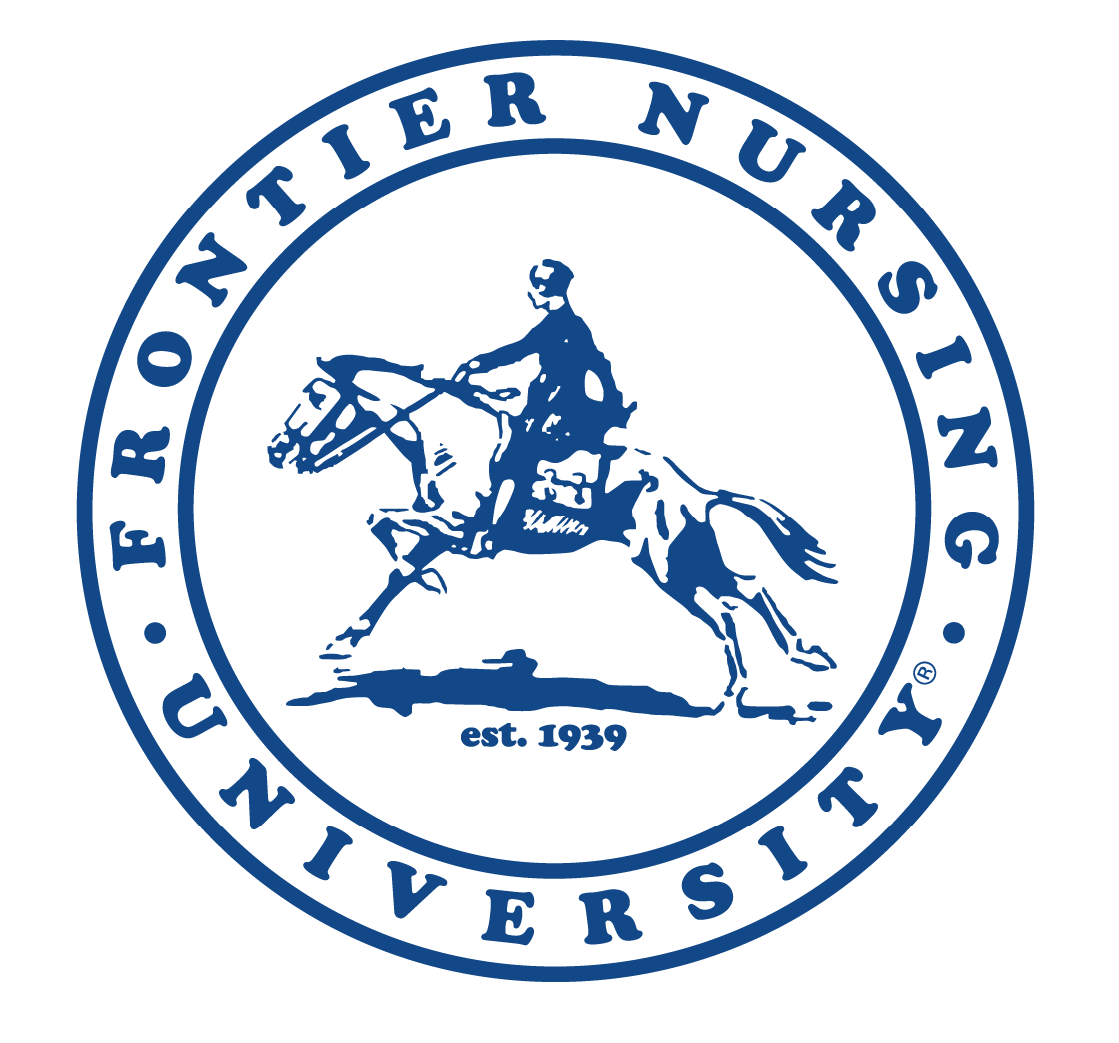Since its foundation in 1939, Frontier Nursing University (FNU) has adopted a mission of reaching rural, diverse and underserved populations. This mission is still being lived out today, where more than 80 FNU alumni are answering the call in Alaska. In the coming months, we will be highlighting several of these alumni who serve in our country’s most remote and unforgiving state.
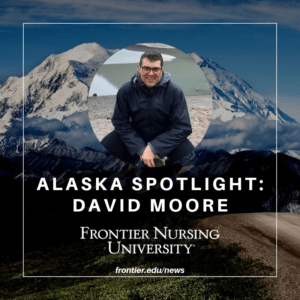 David Moore, FNP, Class 75, chose to work in Alaska so he could serve some of the most vulnerable people in the country’s harshest environment: the homeless.
David Moore, FNP, Class 75, chose to work in Alaska so he could serve some of the most vulnerable people in the country’s harshest environment: the homeless.
David serves as the only nurse practitioner at the Front Street Clinic in downtown Juneau, Alaska, where he is joined by a registered nurse, two behavioral health specialists, and two case managers. Most of his patients are homeless and medically underserved, and many are battling chronic illnesses.
“Most people who come in are present with chronic illnesses,” David said. “They aren’t usually coming in to be treated for a cold. A lot of our patients are transient, and we only see them when some crisis arises.”
The complexity of his patients’ cases prevents David from seeing more than five to seven patients per day. In addition to medical care, the clinic hands out free socks, gloves, hats and hygiene kits to the area’s homeless population.
A native of eastern Tennessee, David was inspired when he read Wide Neighborhoods, the story of Mary Breckinridge and the founding of the Frontier Nursing Service in southeastern Kentucky.
“I’m never shy to say that Mary Breckinridge is my nursing hero,” David said. “I read Wide Neighborhoods even before I went to FNU. I bought my own copy and I fell in love with the mission. That’s why I went there.”
After graduating, David was drawn to the stunning beauty of the pacific northwest and the opportunities it held to serve vulnerable populations. He knew Alaska had a great shortage of medical specialists, requiring patients who need specialized care to either wait for months to see one of the few practicing in Alaska, or fly to Portland or Seattle to receive care.
David has one such patient who was sent for a routine colonoscopy and was diagnosed with rectal cancer. She would have to be treated in Seattle.
“She was a naturalized citizen but didn’t have her paperwork in order to be able to travel,” he said. “We got her to Seattle for surgery and got her in touch with a lawyer to help get her proper identification so she could travel back and forth between here and Seattle. They wouldn’t let her on the plane otherwise. That’s an example of the challenging situations we face in this region.”
David is diligent about looking for ways to increase access to healthcare for his patients. Flying to see a specialist is impossible for many of his patients, so he began utilizing e-consultants via AristaMD, allowing him to send a patient’s chart a specialist online who responds within 24 hours with recommended treatment and instructions.
He also learned how to treat hepatitis C so those patients would no longer need to travel to Anchorage for treatment. Many of his patients suffer from psychiatric illnesses and co-occurring conditions such as substance abuse combined with psychiatric illness, so he learned to treat substance abuse patients.
David credits FNU for helping to cultivate his desire to serve in rural and underserved areas and to look for solutions beyond what would be considered his normal scope of practice.
“The way the FNU program is designed, I had to be independent and dig for resources,” David says. “I had to find my own preceptors. It taught me independence and perseverance. It taught me to go above and beyond to get the job done.”
We are proud of David and all of our FNU graduates, including Kristina Amundson, who go the extra mile to serve in Alaska.
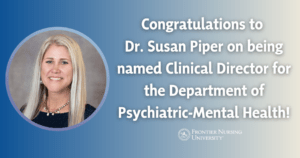
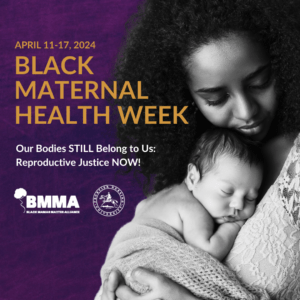
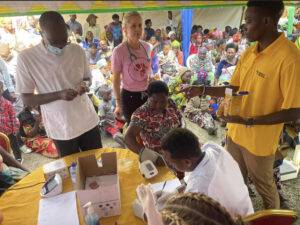


 Vanessa Cameron works for Vanderbilt University Medical Center in Nursing Education & Professional Development. She is also attending George Washington University and progressing towards a PhD in Nursing with an emphasis on ableism in nursing. After becoming disabled in April 2021, Vanessa’s worldview and perspective changed, and a recognition of the ableism present within healthcare and within the culture of nursing was apparent. She has been working since that time to provide educational foundations for nurses about disability and ableism, provide support for fellow disabled nursing colleagues, and advocate for the disabled community within healthcare settings to reduce disparities.
Vanessa Cameron works for Vanderbilt University Medical Center in Nursing Education & Professional Development. She is also attending George Washington University and progressing towards a PhD in Nursing with an emphasis on ableism in nursing. After becoming disabled in April 2021, Vanessa’s worldview and perspective changed, and a recognition of the ableism present within healthcare and within the culture of nursing was apparent. She has been working since that time to provide educational foundations for nurses about disability and ableism, provide support for fellow disabled nursing colleagues, and advocate for the disabled community within healthcare settings to reduce disparities. Dr. Lucinda Canty is a certified nurse-midwife, Associate Professor of Nursing, and Director of the Seedworks Health Equity in Nursing Program at the University of Massachusetts Amherst. She earned a bachelor’s degree in nursing from Columbia University, a master’s degree from Yale University, specializing in nurse-midwifery, and a PhD from the University of Connecticut. Dr. Canty has provided reproductive health care for over 29 years. Her research interests include the prevention of maternal mortality and severe maternal morbidity, reducing racial and ethnic health disparities in reproductive health, promoting diversity in nursing, and eliminating racism in nursing and midwifery.
Dr. Lucinda Canty is a certified nurse-midwife, Associate Professor of Nursing, and Director of the Seedworks Health Equity in Nursing Program at the University of Massachusetts Amherst. She earned a bachelor’s degree in nursing from Columbia University, a master’s degree from Yale University, specializing in nurse-midwifery, and a PhD from the University of Connecticut. Dr. Canty has provided reproductive health care for over 29 years. Her research interests include the prevention of maternal mortality and severe maternal morbidity, reducing racial and ethnic health disparities in reproductive health, promoting diversity in nursing, and eliminating racism in nursing and midwifery. Dr. Lisa Meeks is a distinguished scholar and leader whose unwavering commitment to inclusivity and excellence has significantly influenced the landscape of health professions education and accessibility. She is the founder and executive director of the DocsWithDisabilities Initiative and holds appointments as an Associate Professor in the Departments of Learning Health Sciences and Family Medicine at the University of Michigan.
Dr. Lisa Meeks is a distinguished scholar and leader whose unwavering commitment to inclusivity and excellence has significantly influenced the landscape of health professions education and accessibility. She is the founder and executive director of the DocsWithDisabilities Initiative and holds appointments as an Associate Professor in the Departments of Learning Health Sciences and Family Medicine at the University of Michigan. Dr. Nikia Grayson, DNP, MSN, MPH, MA, CNM, FNP-C, FACNM (she/her) is a trailblazing force in reproductive justice, blending her expertise as a public health activist, anthropologist, and family nurse-midwife to champion the rights and health of underserved communities. Graduating with distinction from Howard University, Nikia holds a bachelor’s degree in communications and a master’s degree in public health. Her academic journey also led her to the University of Memphis, where she earned a master’s in medical anthropology, and the University of Tennessee, where she achieved both a master’s in nursing and a doctorate in nursing practice. Complementing her extensive education, she completed a post-master’s certificate in midwifery at Frontier Nursing University.
Dr. Nikia Grayson, DNP, MSN, MPH, MA, CNM, FNP-C, FACNM (she/her) is a trailblazing force in reproductive justice, blending her expertise as a public health activist, anthropologist, and family nurse-midwife to champion the rights and health of underserved communities. Graduating with distinction from Howard University, Nikia holds a bachelor’s degree in communications and a master’s degree in public health. Her academic journey also led her to the University of Memphis, where she earned a master’s in medical anthropology, and the University of Tennessee, where she achieved both a master’s in nursing and a doctorate in nursing practice. Complementing her extensive education, she completed a post-master’s certificate in midwifery at Frontier Nursing University.









 Dr. Tia Brown McNair is the Vice President in the Office of Diversity, Equity, and Student Success and Executive Director for the Truth, Racial Healing, and Transformation (TRHT) Campus Centers at the American Association of Colleges and Universities (AAC&U) in Washington, DC. She oversees both funded projects and AAC&U’s continuing programs on equity, inclusive excellence, high-impact practices, and student success. McNair directs AAC&U’s Summer Institutes on High-Impact Practices and Student Success, and TRHT Campus Centers and serves as the project director for several AAC&U initiatives, including the development of a TRHT-focused campus climate toolkit. She is the lead author of From Equity Talk to Equity Walk: Expanding Practitioner Knowledge for Racial Justice in Higher Education (January 2020) and Becoming a Student-Ready College: A New Culture of Leadership for Student Success (July 2016 and August 2022 Second edition).
Dr. Tia Brown McNair is the Vice President in the Office of Diversity, Equity, and Student Success and Executive Director for the Truth, Racial Healing, and Transformation (TRHT) Campus Centers at the American Association of Colleges and Universities (AAC&U) in Washington, DC. She oversees both funded projects and AAC&U’s continuing programs on equity, inclusive excellence, high-impact practices, and student success. McNair directs AAC&U’s Summer Institutes on High-Impact Practices and Student Success, and TRHT Campus Centers and serves as the project director for several AAC&U initiatives, including the development of a TRHT-focused campus climate toolkit. She is the lead author of From Equity Talk to Equity Walk: Expanding Practitioner Knowledge for Racial Justice in Higher Education (January 2020) and Becoming a Student-Ready College: A New Culture of Leadership for Student Success (July 2016 and August 2022 Second edition).